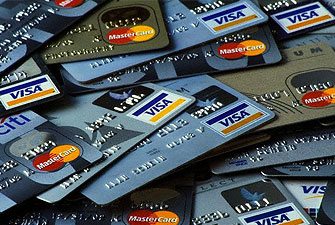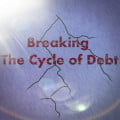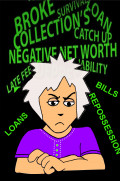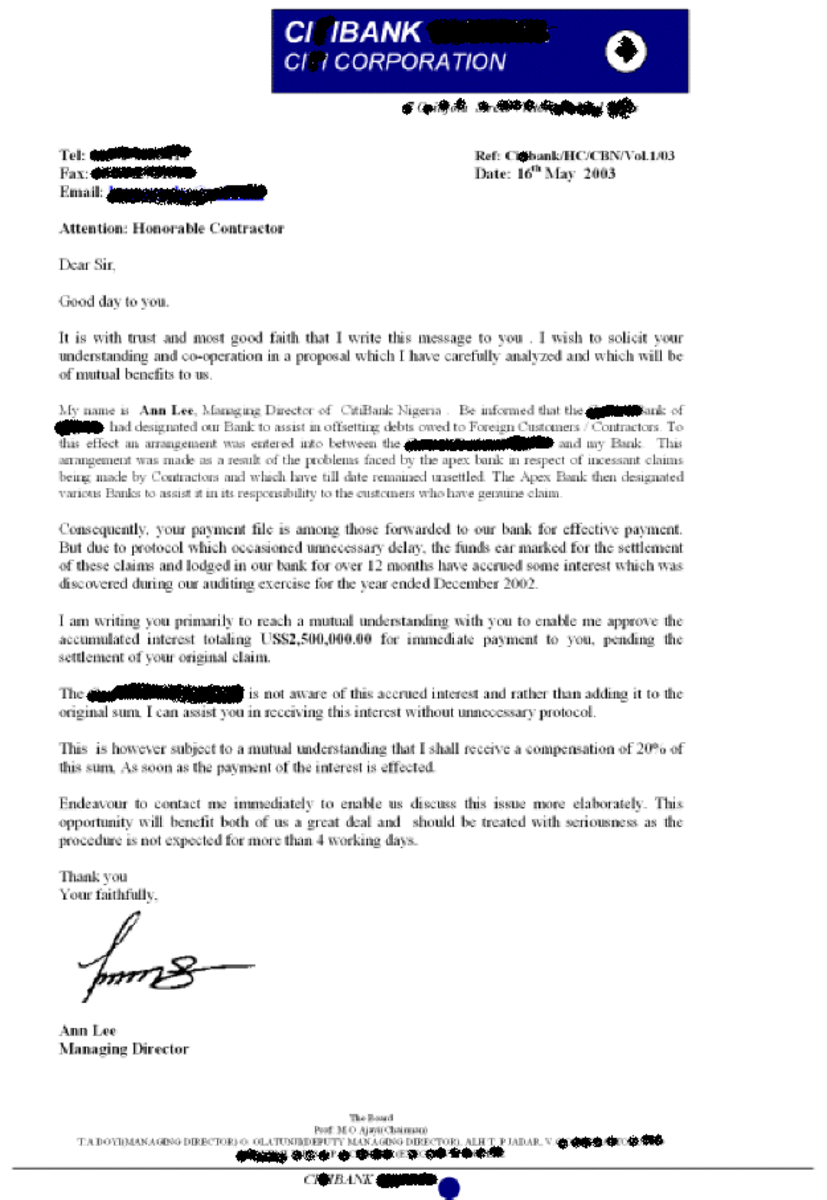How to settle credit card debt
Credit card debt settlement is for those who have got badly in arrears with their debts but wish to avoid bankruptcy.
This applies especially to those who are in professions they can't practice if they become bankrupt eg law or accountancy. It's possible to settle credit card debt yourself by negotiating with the lenders - indeed the do it yourself debt settlement option is better, as it saves you fees and you can be sure that you aren't party to any scam.
This page is designed to be a resource page to help those who wish to settle their debts themselves.

Who is eligible for credit card debt settlement
Credit card lenders will usually not contemplate settling the debts outstanding for less than the amount owed, except in certain circumstances:
1. If you are already badly in arrears and are having problems meeting your minimum payments
and
2. They have put you on a debt repayment plan with interest frozen, but the schedule is so long it might be decades before they get their money back
From December 2008, lenders in the UK started sharing information on people with credit cards - this gives them access to a lot more information than is in your credit report. They will know for instance if you are managing to make minimum payments on your other credit cards, or if you have debt repayment arrangements with other lenders.
Therefore don't foolishly stop paying your credit card payments just to "force" the lender to agree to a settlement below the amount outstanding. They will likely take you to court for trying to game the system and the judge will decide your behaviour constitutes fraud. Always pay something each month, and try to stick to any repayment plans you have agreed. You should only negotiate your credit card debt if you are genuinely in distress.
Related pages
- Dealing with debt collectors
When you get into arrears with your debt payments, one of the most unpleasant things you have to deal with is being harassed by debt collectors. This page tells you your rights under law. - How to repair your credit score
How to repair a bad credit rating or bad credit score by yourself - Debt Advice - How to get out of debt
step by step guide on how to get out of debt
What to do
The first thing to do if you are struggling to meet your credit card payments is to contact your lender and ask them to freeze the interest and then agree to pay them a monthly sum. If you are badly in arrears, most lenders will agree to freeze interest and put you on a debt repayment plan. They usually like to get their money back within seven to ten years, but will accept a lower payment if they believe you will be able to resume higher payment in the near future (perhaps because you will find a job or get a promotion).
It's important to understand that the freezing of interest is temporary and they will also contact you at regular intervals to see if you can increase the amount you pay to them. Don't assume that the interest will be frozen permanently. It's important to assure the lender that you will do everything you can to find a better paying job/raise money to repay them in the near future.
Please also be aware that if your repayment plan monthly payments are large enough to repay the money owed within seven to ten years, the lender will keep your debt. However if the monthly payments are low so that you won't finish repaying for several decades, and it looks like you can't increase your payment within a year or so, the lender is likely to sell your debt on to a third party. Third parties tend to be more brutal about debt collection. They don't have a retail reputation to protect and will pursue you relentlessly for the money.
If the lender is being difficult about freezing the interest, approach a charity such as CCCS and ask them to negotiate on your behalf (they will do this for you free of charge).
Once you have got your breathing space with your frozen interest, you need to try to raise money to enable you to settle the credit card debt.
Don't borrow money against your house to settle the amount owed - you will just be turning an unsecured debt into a secured debt. (Note that some of the companies who purchase your debt will pressure you to try to borrow against your home to settle - resist strongly - tell them that you are unable to borrow further due to your credit score being so bad). Instead see if you can earn the money or sell something to raise cash.
1. Go through your house and see if there is anything to sell. Now is not the time to be precious about your Star Wars memorabilia. Old books can also fetch money, especially if they are out of print. Old video games also fetch good money from enthusiasts. Check the terms on Amazon as well as Ebay - it's sometimes easier to sell on Amazon as the fixed fee they allow you to charge for postage can sometimes work in your favour (i.e. the real cost of postage is less).
2. See if you can take in a lodger. Under UK law you can rent out a room in your house for up to £4250 per annum tax free.
3. Try to earn money doing odd jobs. One idea is to get yourself a bucket, water, soap, sponge and polish and head to your local supermarket. Get permission from them to put up a sign in the carpark saying that you will clean cars for £5 while they do their shopping - preferably choose a supermarket carpark that doesn't have a petrol station with carwash attached. Then try to get as much business as you can. This will be very hard work - you will have to work fast and do a good job. The good news is that because it is such hard work, you won't have any competition. A few weekends of this and you should have raised some cash. Always do the legal thing and declare this for tax (if you don't it's likely someone will shop you to the authorities, and then you will have fines to pay on top of the tax).
4. See if you can get overtime at work (though this might be a forlorn hope in a recession). You also lose nothing by applying for promotions or another better paying job (the worst they can do is say no). Don't be ashamed to apply for a second job doing pizza delivery in the evenings or shelf-stacking or working behind a bar. Professionals often find it hard to "stoop" to doing basic second jobs, but put aside your pride. It's quite likely that the people you socialise with won't find out, especially if your second job involves anti-social hours. If they do find out, just blame the recession.
5. See if you can earn money online.on a platform such as hubpages
6. Consider whether you can sell your car and get something smaller and cheaper. The difference freed up might raise enough to pay your debt. If you are in an area with reliable and cheap public transport, consider doing without the car at all.
7. See if you can cut back on your expenditure sharply. Stop using taxis, stop getting takeaways or eating out. Stop buying premium products. Postpone buying new clothes and give up the idea of going away on holiday until your debts are cleared. One way of cutting the weekly grocery bill is to give up eating meat and ready meals, and instead start cooking rice, beans and lentils (which are extremely cheap) from scratch. It's hard, but you will never be clear of your debts unless you bite the bullet now and really try to ensure you are not spending too much.
8. As a last resort ask a family member if they can lend you the money to settle the debt - you can then arrange to repay them on a monthly basis as though they were the lender. Caution: if you go down this route you must ensure you pay back everything you have borrowed. Families often fall apart and develop feuds over one member borrowing money and not paying it back, causing other members of the family hardship. Given that your relationships with your family are the most important in your life, don't do anything to jeorpadize them.
Negotiating the debt settlement
Once you have raised the money, phone the lender and ask if it possible to settle the credit card debt. If you are negotiating with the original lender, they may accept a settlement of 70%-80% of the amount outstanding. If you are negotiating with a company that has bought your debt, they may accept 50%-70% of the amount outstanding.
When you agree the sum, ask them to put the offer of a full and final settlement to you in writing. This is important - you don't want to find out down the line that it was a partial settlement, and that they have sold the balance on.
When you get their offer letter, reply with a letter of your own, referring to their letter by date, and advising that you are enclosing a cheque which will be the full and final settlement of the debt. In your letter, ask them to acknowledge receipt of your cheque. It's very important that you use the words "full and final settlement" in your letter so that it is crystal clear what is happening. Then photocopy your letter and your cheque, and post it to them by recorded delivery. Once your cheque has cleared, they should notify the credit reference organisations that you have settled the debt. Make sure you keep the photocopies and proof of postage for seven years in case of dispute.
Do it yourself debt negotiation is always cheaper than using a debt settlement company. The only exception is using the charity CCCS, who offer their services free, but they tend to specialise in negotiating manageable repayment plans rather than debt settlement.





